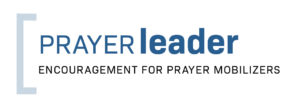By Andrea Hebeisen
 The police-involved death of George Floyd on May 25, 2020, in Minneapolis, MN, ignited a fiery focus on racial justice and unrest throughout the country. I live in the Twin Cities area, and this was not the first time I had viewed a video documenting a black American man dying at the hands of those who are supposed to protect. But, for some reason, this was the first time I felt it personally.
The police-involved death of George Floyd on May 25, 2020, in Minneapolis, MN, ignited a fiery focus on racial justice and unrest throughout the country. I live in the Twin Cities area, and this was not the first time I had viewed a video documenting a black American man dying at the hands of those who are supposed to protect. But, for some reason, this was the first time I felt it personally.
I am not proud to say that. I knew I needed to personally repent and look deeply at my own complicity. As a church leader, I started to educate myself regarding ways people of faith have historically worked against racial justice. Even past accounts of revival in our nation are tainted by compromised biblical teaching about human dignity and equality.
A few people in my church started a learning circle to educate ourselves about the role of the Church throughout our nation’s history. We started reading books and watching videos. We identified racist thoughts and actions in our own lives. We prayed and asked God to do what only He could do in our hearts.
The Power of Listening
One person in our group had recently started attending a black congregation. She and her husband asked that church’s pastor how to help in these fearful and tension-filled times. He suggested we start with prayer.
Another church also asked to participate, so the three churches—one mostly white, one mostly black, and one mixed church—started praying every Monday from noon to 1:00 p.m. I invited others from our church’s Prayer Force to join us.
Gathering outside, with masks over our faces because of the COVID pandemic, we stood in a circle in the park across the street from the church and prayed. We didn’t just start with prayer and then discuss the issues.
Our prayer times consisted of heartfelt repentance, a sense of oneness, and, most importantly, grace. We have found it hard at times to even know what to pray. I am a pastor of prayer who is used to leading in prayer. But I found myself mainly listening. I heard pain. Pain of so many lives gone too soon because of one’s skin color. Pain of fear and not being heard.
I have never felt my heart change the way it has since we have gathered in this circle to pray. Listening has been the biggest change—listening to the way the Holy Spirit speaks through others whose experiences are much different from my own.
The Joy of a New Thing
During one of our prayer times, God reminded me of His promise to do “something new” in the lives of His people (Isaiah 43:19). And in my spirit I heard, “This is the new thing I am doing, and if I would have told you about it you would not have believed Me.” I recognized the second half of that statement, reflecting Habakkuk 1:5.
This resonated deeply in my spirit because it is true. God did it. He drew us together. Previously, the thought to pray with my brothers and sisters in Christ who are black had never crossed my mind. I didn’t think I held any prejudice or racist thoughts. I was blind and couldn’t see the log in my own eye.
But now, Monday noon prayer times are the highlight of my week. Although we can’t even hug one another because of the pandemic, we still feel the love for one another that God is growing in us. We can pray together. We must pray together. Prayer is the work of love.
In the process, we are getting to know one another and forming friendships. One of the churches helped lead a larger prayer gathering with other congregations in North Minneapolis (a high-crime area with much racial tension), and they invited us to join them. Another church held a fall harvest festival and asked for help. And as part of Pastor Appreciation Month, one church asked the other two pastors to help “speak encouragement into their pastor.”
The Path of Unity
We begin each prayer time with the song “We Are One in the Spirit.” The last line says, “And they’ll know we are Christians by our love.”
During this time of racial unrest, we can:
- educate ourselves to better understand how we have all compromised what the Bible teaches about human dignity and equality
- demonstrate humility and minimize our defensiveness by actively listening to others ask God to help us—through prayer—to build authentic relationships and trust with people in the body of Christ who don’t look like us or who hold different views.
When we pray together, we can’t help but love one another. And out of that love will come the healing we so desperately need.
ANDREA HEBEISEN is pastor of prayer and worship programming for Wayzata Evangelical Free Church, Plymouth, MN. She desires to lead her church to center on Jesus through intimacy in prayer and lavish worship.


